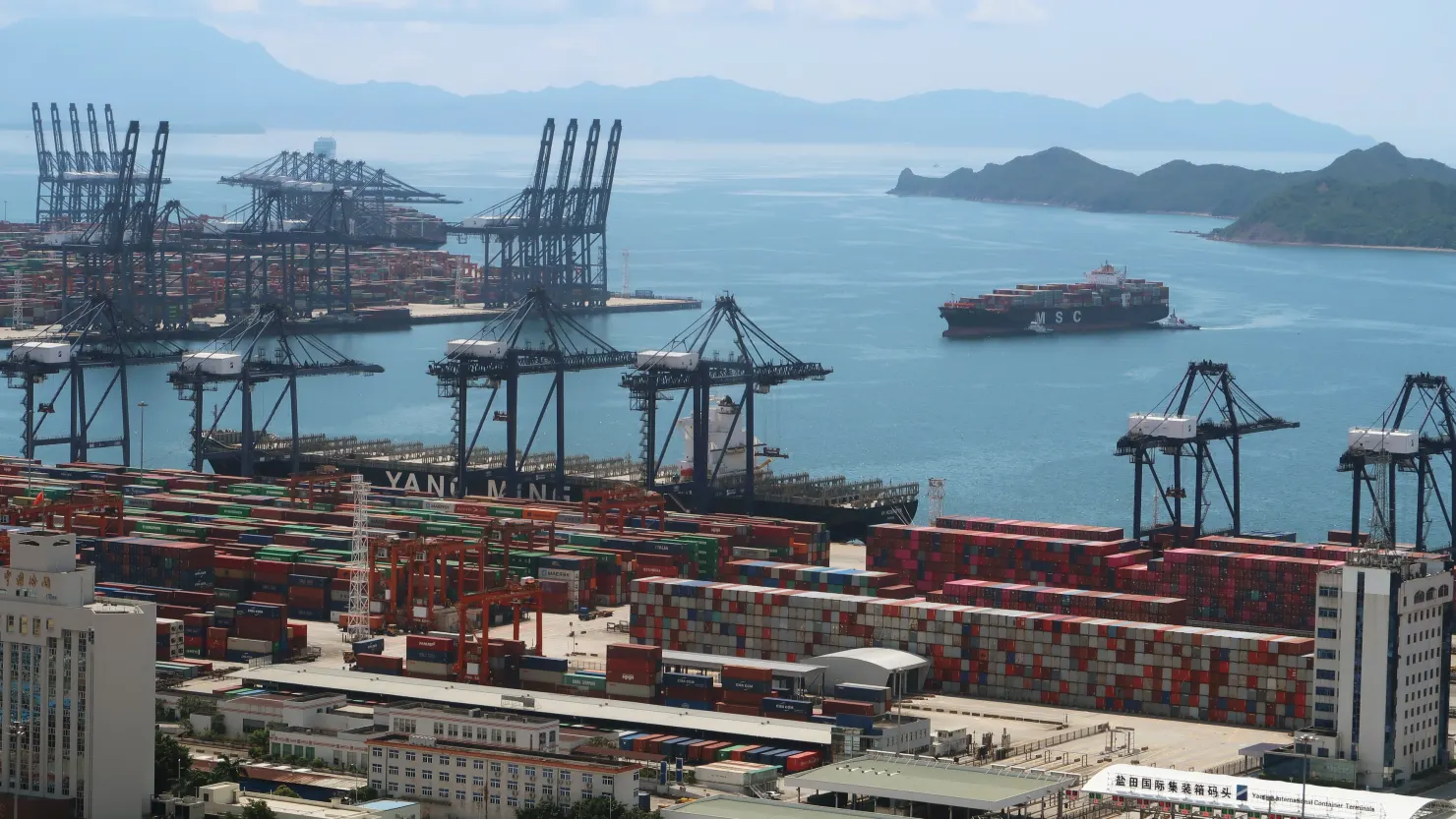BEIJING — China’s exports rose by 8.7% year-on-year in U.S. dollar terms in August, according to the customs agency.
That was higher than the forecast for growth of 6.5% year-on-year in U.S. dollar terms, according to a Reuters poll.
Imports grew by 0.5%. That was less than the expected 2% increase from a year ago in U.S. dollar terms, the poll showed. In July, exports rose by 7% from a year ago, while imports increased by a more-than-expected 7.2%.
China’s exports to its major trading partners — the U.S., European Union and Association of Southeast Asian Nations — all rose in August from a year ago. Exports to the EU grew the most, up by 13%, according to CNBC calculations of official data.
China’s imports from the U.S. rose by 12% in August from a year ago, while imports from the EU fell, the data analysis showed. Imports from ASEAN rose by 5%.
China’s imports from Russia fell by 1%, while exports rose by 10%, the data analysis showed.
China’s exports of cars rose by nearly 40% in August to 610,000 vehicles. Exports of ship vessels rose by 40%, while the number of smartphones exported climbed by 6.7%. Suitcase exports rose by nearly 9%.
The value of integrated circuits exported rose by 18%, while imports increased by 11%.
Rare earths trade drops
The volume of China’s rare earths exports fell by 1% in August from a year ago, while imports declined by 12%.
The country in June announced a new policy to increase its oversight of the domestic rare earths industry out of national security concerns. In August, the Ministry of Commerce surprised some in the critical minerals industry with export controls on antimony that are set to take effect later in September.
China’s imports of crude oil fell 7% in volume in August.
In terms of Chinese yuan, year-to-date exports rose by 6.9%, while imports were up by 4.7%.
China’s exports have been a bright spot in an economy otherwise struggling to boost domestic demand.
Despite the “surprising” exports beat, imports are more important “given the focus on whether China can generate sufficient domestic demand to avoid a deflationary cycle,” Steve Brice, chief investment officer at Standard Chartered Wealth Management, said Tuesday morning on CNBC’s “Street Signs Asia.”
He expects those concerns will weigh on stocks, especially given the risk that a Trump administration further increases tariffs on China’s exports.
Mainland Chinese stocks traded lower Tuesday. China is scheduled on Saturday to release retail sales, industrial production and investment data for August.
The core consumer price index, which strips out the more volatile food and energy prices, rose by 0.3% in August from a year ago, official data released Monday showed. That was the slowest since March 2021, according to Wind Information.
China’s growing reliance on exports also comes as trade tensions increase with the U.S. and European Union, leading to added tariffs on Chinese electric cars and other products.

